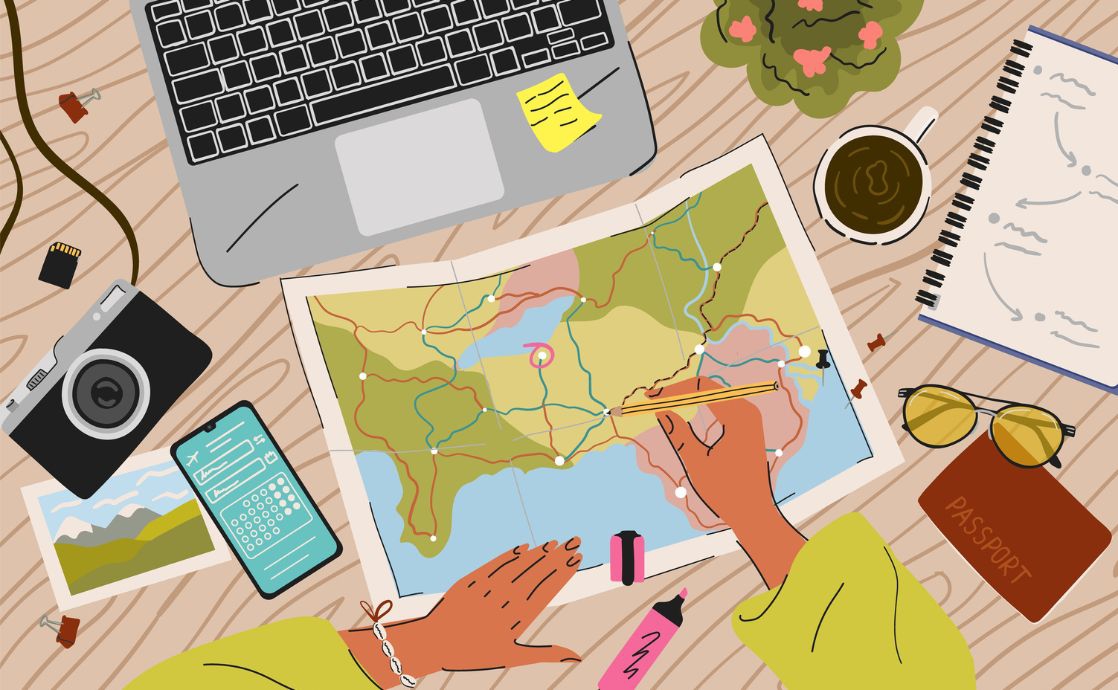The views expressed in our content reflect individual perspectives and do not represent the authoritative views of the Baha'i Faith.
A recent study found that having a holiday on the horizon increases our chances of staying happy — maybe even more than the holiday itself.
The research shows that the time spent planning a trip frequently proves more enjoyable than the trip itself or the feelings immediately following the return home. The reason? Anticipation.
RELATED: Tech, Touch, and Nomophobia: Are We Over-Connected?
Though this is not a universal experience, reportedly it is a common one. Vacations can often be fraught with disappointments or leave us feeling exhausted rather than invigorated. Then, people add up the costs and worry about paying for it all.
The advice from the study included enjoying a longer time for planning in order to extend the period of anticipation, and always having another trip planned, even if just a weekend excursion. As I pondered the effects of anticipating future joy, images of old ketchup commercials and the song “Anticipation” went reeling through my mind — and then I thought more about this news item and the accompanying commentary.
We’ve all experienced anticipation as a genuinely pleasurable emotion. Everyone needs a break from our daily routines and responsibilities, and a vacation can offer that break. But aside from time off, what else might I look forward to? Before the vacation begins, the list of possibilities is splendidly long and full of positive outcomes. But what about disappointment in the vacation itself? Feeling disappointment means having preconceived notions – rather than welcoming whatever occurs, we have a vision of what we think should happen. Yet, some of my own best times have occurred when I had no specific expectations.
I love wandering in unfamiliar places and letting events unfold. This doesn’t have to involve an extended visit to a faraway, exotic place. One of my earliest lessons in this came as a university student preparing for a semester-long field study experience. After being driven by my professor to a small town an hour away from campus, I was told to explore and then write a paper about what I learned that day. Even now, many years later, I fondly think back to that day, including the nice person at the local cafe who bought me lunch while we chatted about the hopes and fears of young adults.
Given our busy lives and the fact that a vacation may be long in planning and then short in duration, and recognizing the high cost in both time and money associated with it, we each have our own ideas about how each trip, vacation, or holiday will turn out. We might expect fun, relaxation, excitement, intellectual stimulation, or romance. Rather than being disappointed if it turns out otherwise, we can all become travelers open to surprise — and then, wondrous events can unfold.
RELATED: Taking a Trip? Make it Spiritually Meaningful
Like each trip, life itself is a journey, if not a vacation, filled with unknowns. Adapting to what happens along the way gives us an opportunity to see life in a different way. As quoted in J. E. Esslemont’s book Baha’u’llah and the New Era, Abdu’l-Baha said:
Anyone can be happy in the state of comfort, ease, health, success, pleasure and joy; but if one will be happy and contented in the time of trouble, hardship and prevailing disease, that is the proof of nobility.
If happiness and contentment are proof of nobility in such serious circumstances as trouble, hardship, or disease, then surely I can consider what happens on a weekend trip or a vacation as good things, too. Each trip away from the familiar patterns of life offers a chance to embrace the unknown, to accept what is, and to recognize that even the disappointments will make good stories later.
















Comments
Sign in or create an account
Continue with Googleor